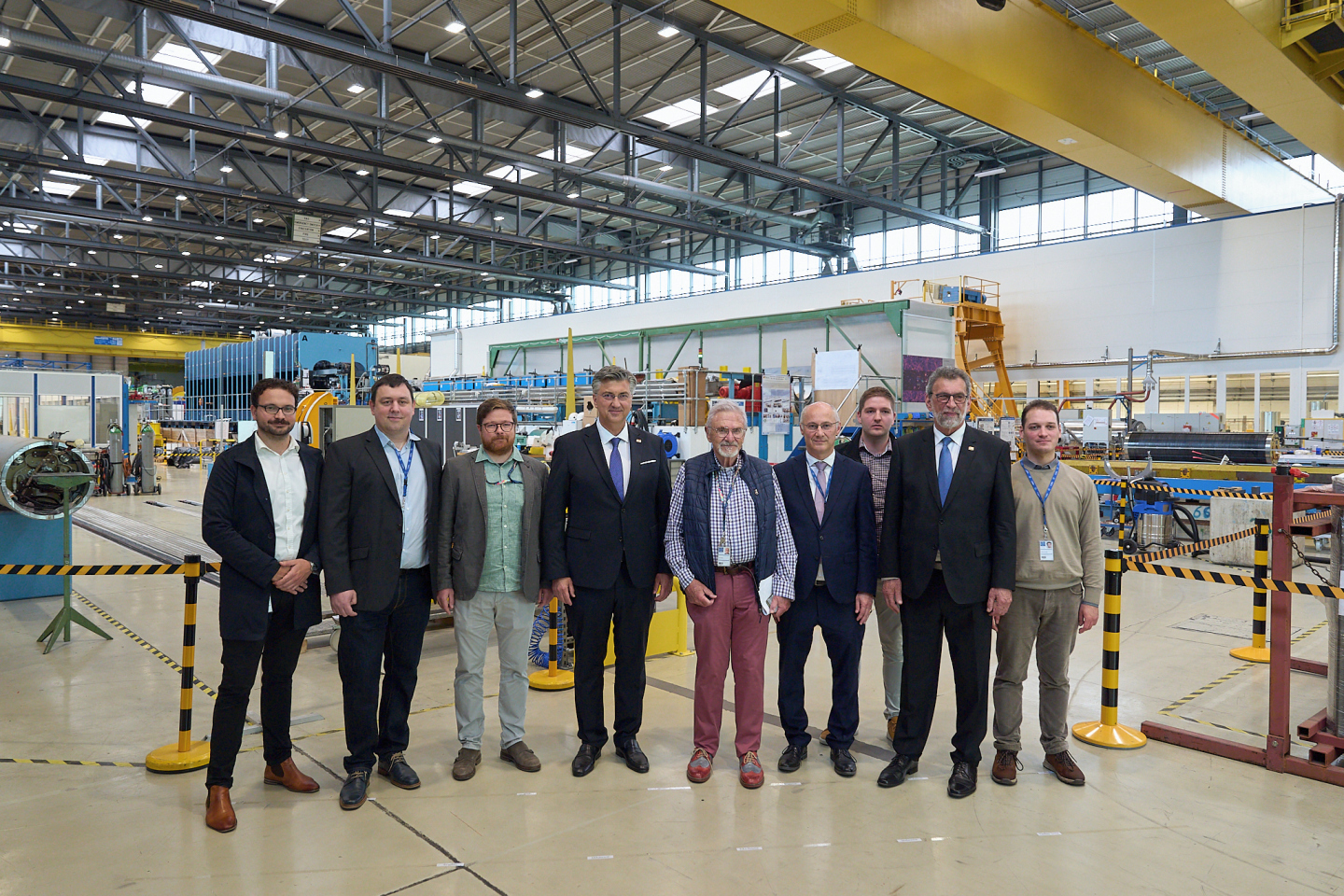Five years after becoming an associate member, Croatia has made excellent use of the new opportunities this status has offered. Many young researchers have benefited from new training and development prospects, with the knowledge gained enabling the launch of new research initiatives at IRB. Additionally, domestic companies have successfully competed in international tenders related to CERN. The importance of this collaboration was underscored by the recent visit of the Prime Minister of the Republic of Croatia, Andrej Plenković, to CERN. The Croatian delegation included Dr. Vuko Brigljević of the Ruđer Bošković Institute, who serves as the national contact point for CERN activities in Croatia.
During the visit, it was emphasized that Croatia actively participates in key CERN experiments through five institutions and more than 50 scientists. Over 120 Croatian teachers and dozens of students also take part in CERN’s educational programs.
CERN was founded after World War II by a group of leading European scientists and diplomats with a mission to restore scientific excellence in Europe and foster peaceful international cooperation. Today, CERN includes 24 member states, 10 associate member states, and a dynamic community of 17,000 people representing more than 110 nationalities.
The Ruđer Bošković Institute has been collaborating with CERN since the 1980s, when its scientists first contributed to the development of detectors and the first IRB team participated in a CERN experiment. Today, six laboratories within the IRB’s Division of Experimental and Theoretical Physics and its Centre for Detectors form the core of Croatia’s contribution to the cutting-edge technologies that power the most ambitious particle physics experiments.
RBI scientists are actively involved in projects that develop advanced materials and detectors capable of withstanding the extreme environments inside particle colliders. These detectors are crucial not only for future generations of CERN experiments but also for a wide range of industrial applications. IRB’s role as a transnational testing hub for detectors — a status earned through the European project AIDA-2020 — affirms its place in the global scientific network.
In addition to experimental work, RBI’s Division of Theoretical Physics conducts key theoretical research, modeling and analyzing phenomena tied to the latest discoveries at CERN — from the Higgs boson to the very limits of the structure of matter.


